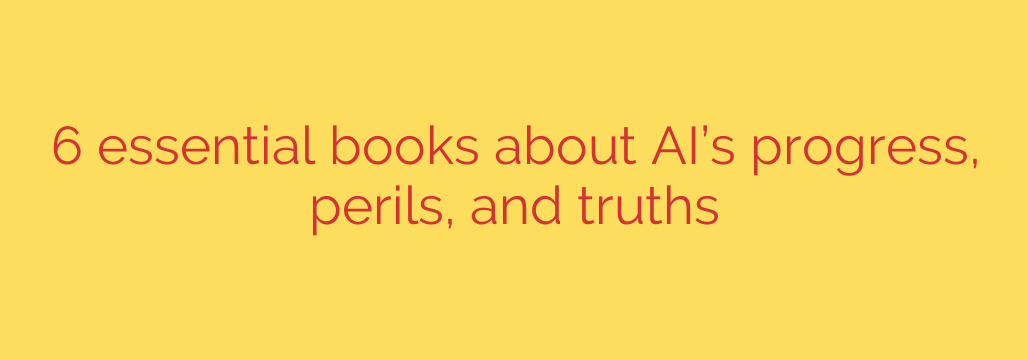
Artificial intelligence (AI) is no longer a futuristic concept confined to science fiction; it’s a powerful force actively reshaping our present and future. As AI capabilities advance at an astonishing pace, it’s becoming increasingly crucial for everyone – not just technologists – to grasp its complexities, potential benefits, and significant challenges. Understanding AI requires looking beyond the often sensationalized headlines and delving into the nuanced realities of its development and impact.
One of the most striking aspects of AI is its rapid and transformative progress. From revolutionizing healthcare diagnostics and drug discovery to powering autonomous vehicles and personalized learning platforms, AI is demonstrating immense potential to solve some of humanity’s most pressing problems and create unprecedented opportunities. Machine learning, deep learning, and natural language processing are just some of the fields seeing breakthroughs that were unimaginable just a few years ago.
However, this progress is accompanied by profound ethical dilemmas and potential perils. As AI systems become more integrated into critical decision-making processes, concerns about fairness, transparency, and accountability grow. Bias embedded in training data can lead to discriminatory outcomes in areas like hiring, lending, and criminal justice. The potential for widespread job displacement as automation increases across industries is another major societal challenge that requires careful planning and adaptation.
Beyond the immediate societal impacts, the long-term trajectory of AI development raises even more complex questions. Discussions about the possibility of superintelligent AI, while perhaps speculative, highlight the importance of considering the ultimate control and alignment of systems that could potentially surpass human cognitive abilities. Ensuring AI is developed and used safely and responsibly is paramount to mitigating potential catastrophic risks.
Navigating this rapidly evolving landscape requires informed awareness and critical thinking. It’s essential to distinguish between current AI capabilities and future possibilities, and to understand the limitations as well as the strengths of today’s AI systems. Understanding the underlying principles, the data they are trained on, and the potential for unintended consequences is key.
Ultimately, the journey through the age of AI is one that necessitates ongoing learning and proactive engagement. Whether you are a policymaker, a business leader, a student, or simply a concerned citizen, staying informed about AI’s true nature, its potential impacts, and the crucial debates surrounding its future is vital. Engaging in thoughtful dialogue and advocating for responsible innovation are steps everyone can take to help shape a future where AI serves humanity’s best interests. The narrative of AI is still being written, and understanding its progress, confronting its perils, and seeking its truths are essential for guiding its development responsibly.
Source: https://www.helpnetsecurity.com/2025/07/09/ai-books-risk-reality/








